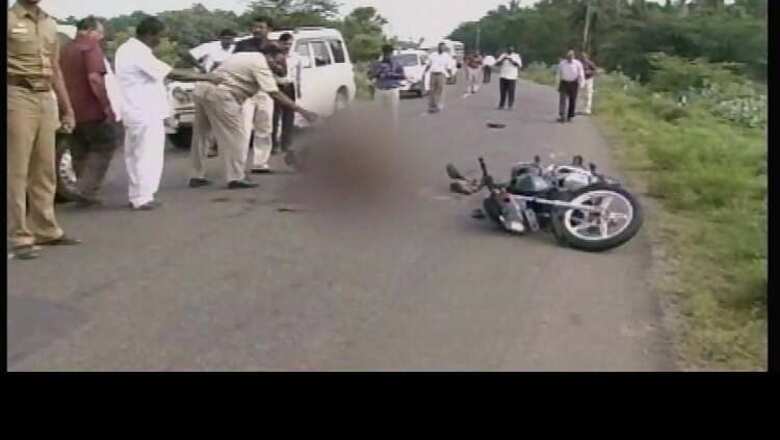
views
Over one lakh people die every year due to road accidents on Indian roads. Most road accident victims die because they aren't taken to hospitals on time. Bystanders shy away from taking victims for treatment due to various reasons.
A study conducted by NGO SaveLife foundation shows that 88% of bystanders do not help since they fear legal hassles like questioning and court appearances, 74% say they would be more inclined to help if the accident occurred in a familiar environment, 77% of those unwilling to help pointed to uncooperative hospitals as the cause, 88% said there was need for a Good Samaritan Law to encourage bystanders to help accident victims.
"We know of cases where people have had to come from N-E to Delhi to depose in a case. The case was adjourned and they had to go all the way back. Multiple adjournments, tremendous amounts of costs. That's what we're trying to save," Save Life foundation founder Piyush Tiwari said.
Following a Supreme Court order in 2014, the central government has issued guidelines which offer some protection to a person who takes an accident victim to hospital. However, the implementation of the guidelines is a challenge.
As per the recommended guidelines there should be no criminal or civil liability against good samaritans. There should be no compulsion to disclose identity. They should not be harassed either by police or in court. Hospitals also must not demand registration fee in accident cases.
However, there is no law which makes these guidelines binding. Bharatiya Janata Party BJP MP Kirron Kher has introduced a Bill in Parliament asking for a Good Samaritan Law.
"It is an extremely important piece of legislation because most people die in the first hour, either due to loss of blood due to lack of medical help, and I think in that one hour if they are attended to so many lives can be saved. So I think for India especially this is very important. It would need a proper structure, it would make sure that it filters down to the states. You have trauma centres and hospitals and police station everywhere, so they all need to be sensitised. It has to be a part of the training of police personnel, so all that has to be in the training," Kirron Kher said.
While the guidelines are a welcome step, the country needs the law in line with those which already exists in Canada, Australia, United States and China so that those who come forward to save the lives of the others are not hounded by the system.




















Comments
0 comment